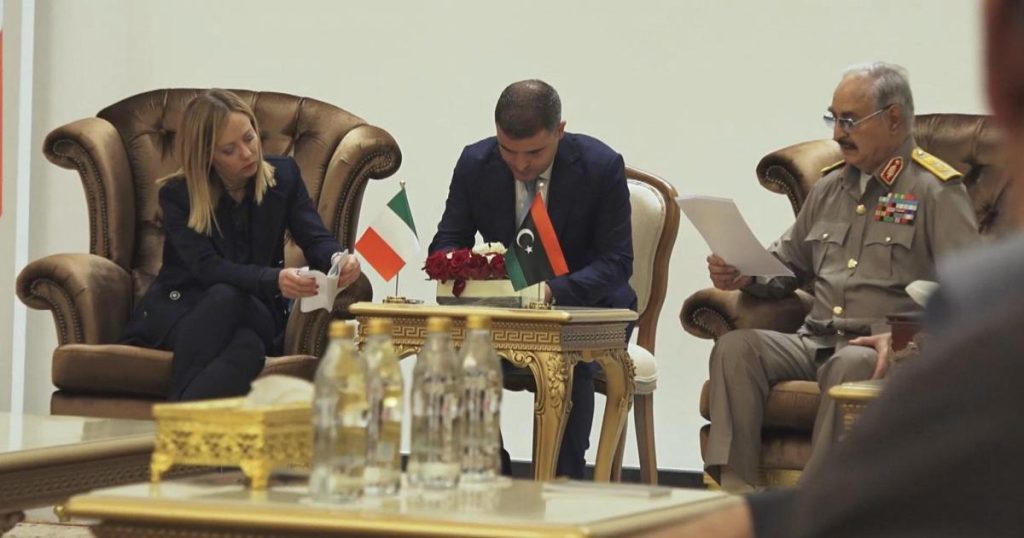Italian Prime Minister Meloni recently visited Libya and met with the two rival governments based in Tripoli and Benghazi. The purpose of her visit was to push for elections to be held under the auspices of the United Nations. She met with Fayez al-Sarraj, the head of the government in Tripoli, and Khalifa Haftar, the military leader based in Benghazi, in an effort to bridge the divide between the two factions that have been in conflict for years.
During her visit, Meloni was able to secure three joint declarations in Tripoli, signaling a potential breakthrough in the ongoing conflict in Libya. These declarations are seen as a step towards a peaceful resolution and a pathway towards holding free and fair elections in the war-torn country. The Italian Prime Minister is acting as a mediator between the two rival factions, urging them to come together for the good of the Libyan people and to work towards a stable and democratic future for the country.
The situation in Libya has been unstable for years, with rival factions vying for control and power. The conflict has resulted in a humanitarian crisis, with thousands of people killed and displaced. The international community has been pushing for a political solution to the conflict, and the recent visit by Prime Minister Meloni is seen as a significant step towards that goal. By securing joint declarations from both sides, there is hope that a peaceful resolution can be achieved and that elections can be held to establish a legitimate government in Libya.
The role of the United Nations in overseeing the elections is crucial, as it provides a neutral and impartial framework for the electoral process. Both factions in Libya have agreed to hold elections under the auspices of the UN, signaling a willingness to work towards a democratic transition. This is a positive development that bodes well for the future of Libya, as it paves the way for a peaceful and democratic resolution to the conflict. The international community has welcomed this development and has pledged support for the election process in Libya.
Prime Minister Meloni’s visit to Libya is a testament to Italy’s commitment to finding a peaceful solution to the conflict in the country. By engaging with both factions and securing joint declarations, she has shown leadership and diplomacy in working towards a resolution. The success of her visit is a positive sign that progress can be made towards ending the conflict and establishing a stable and democratic government in Libya. The international community will continue to support these efforts and work towards a peaceful transition in the country.
In conclusion, Prime Minister Meloni’s visit to Libya and her efforts to push for elections under the auspices of the UN are a significant step towards a peaceful resolution of the conflict in the country. By securing joint declarations from both factions, there is hope that a democratic transition can be achieved, bringing an end to years of instability and conflict. The international community’s support for the election process is crucial in ensuring a fair and transparent electoral process in Libya. Italy’s role as a mediator in the conflict is key to building trust and cooperation between the rival factions, paving the way for a peaceful and democratic future for the country.















